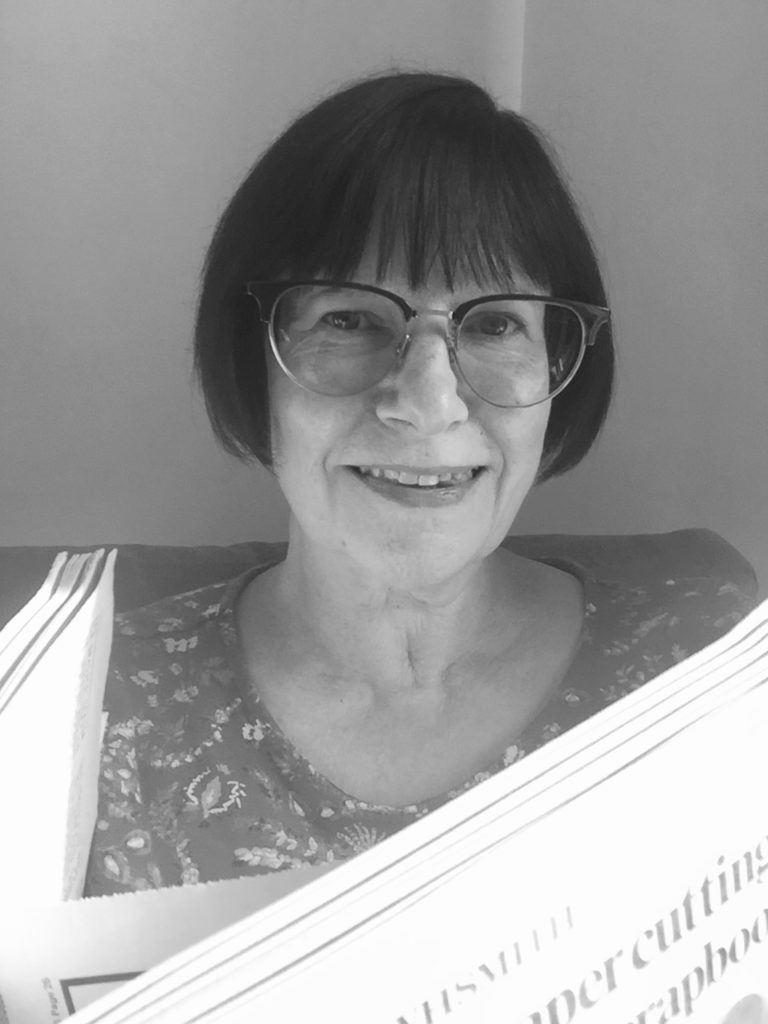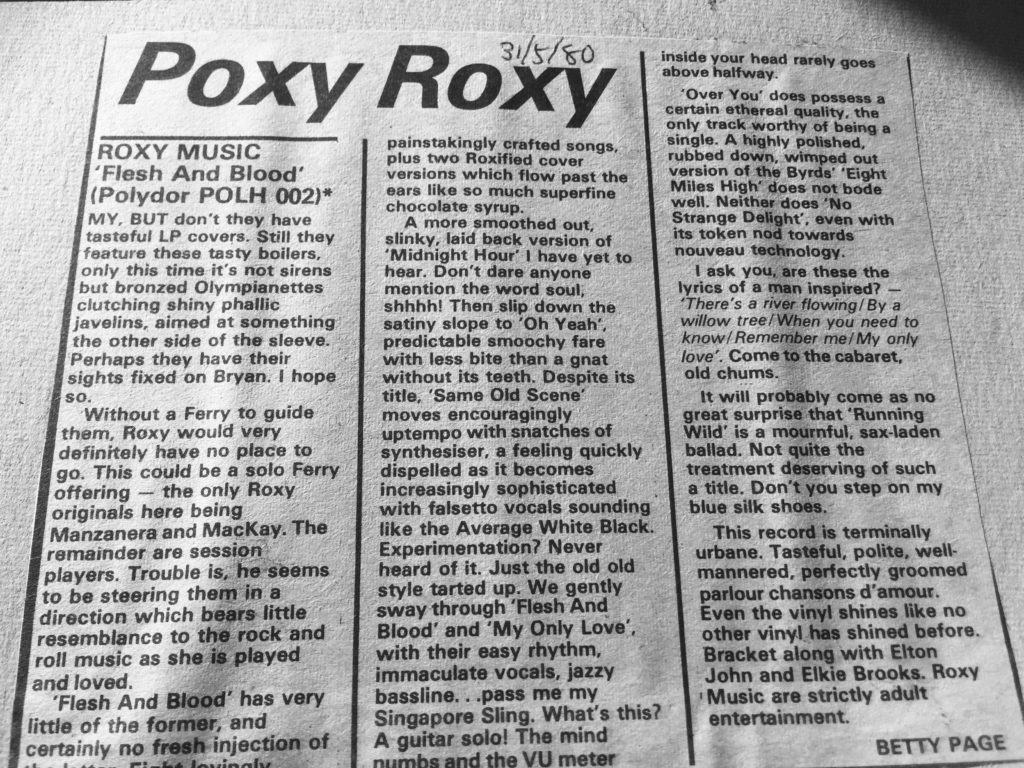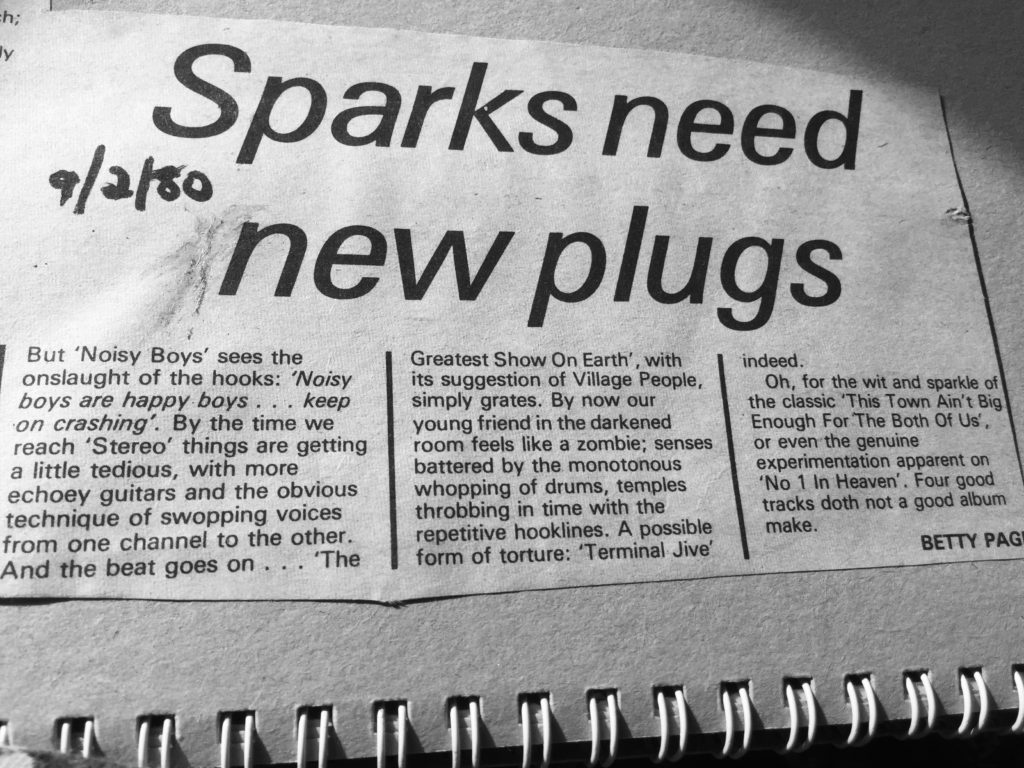
I often refer to myself as “the accidental journalist”. Becoming a professional writer wasn’t part of my career plan. I had trained to be a secretary, and that’s what I was – until I started working for the editor of Sounds, a rock music paper, and a year later found myself writing my first gig review and having it published under my pen name, Betty Page.
I benefited from the “anyone can do it” spirit of punk – an era in the late 70s when you didn’t need to be trained, or be an expert, to express yourself – as well as the mentorship of an experienced Sounds writer.
Luckily, I still have a scrapbook of cuttings of my early reviews and features. I dug it out the other day to see if I could track the development of my voice.
In the early months of 1980, the reviews editor threw me a few crumbs – compilation albums, records by up-and-coming bands, but none of the “big hitters”. Looking back, I can see I was a bit hesitant in expressing a strong opinion.
But it didn’t take me long to grow a pair and tear into sacred cows (Roxy Music and Sparks), my teenage sweethearts (Wishbone Ash) and new pop pretenders (New Musik and Buggles) with a mixture of humour, wordplay, metaphors and beginners’ enthusiasm.

Here is the final paragraph of my one-star dismissal of Roxy’s album Flesh and Blood: “This record is terminally urbane. Tasteful, polite, well-mannered, perfectly groomed parlour chansons d’amour. Even the vinyl shines like no other vinyl has shined before.”
I would edit that second sentence to insert a verb, but otherwise it’s OK. I do, however, shudder at the words “tasty boilers” at the beginning of the review. It was common vernacular at the time, used to describe attractive women, but I would never use that language now.

The Sparks album Terminal Jive didn’t fare much better. I imagined a scenario in which a heavy metal fan was put in a darkened room and given a pair of headphones playing side 1 of this album at full volume. He might just emerge thinking that electronic disco music was actually not bad at all. By the end of the album, however, he will have been “battered by the monotonous whopping of drums, temples throbbing in time with the repetitive hooklines”.
I also wrote that producer Giorgio Moroder’s input was “about as subtle as a poltergeist”.
At that point, my voice was cheeky, creative, emboldened, critical, opinionated (as every rock critic was expected to be) and increasingly assured about my references. And that voice developed quickly, as you might expect when my writing was being published every week.
That voice was entirely appropriate for the publication I was writing for, and the era I was writing in – immediately post-punk, when synthesisers were becoming cheaper and more widely available and electronic music was on the rise.
I was also supported by more experienced journalists and editors, who encouraged me to express my own point of view and didn’t impose their voice on mine.
A month after the final cutting in my scrapbook, I was elevated from editor’s secretary to staff writer, so I must have been doing something right.
My writing evolved over the years, according to the publication I was writing for, but I would argue that I have never lost that cheekiness, creativity, love of wordplay and warm humour.
So what have I learned from this retrospective exercise about how to find your voice in the written word? I reckon you need to:
- Start by writing freely – don’t edit yourself.
- Keep writing until it becomes a habit.
- Have the courage to stand behind a point of view.
- Be clear about who you are writing for.
- Hear yourself speaking in your writing.
- Unleash the full range of your personality.
- Find a writing mentor or editor.
- Give yourself permission to have fun and enjoy writing.
I’ll be digging into each of these learnings in my next blog. Until then, I offer you this: if I can become an accidental journalist, so can you. We are all publishers now, and if you want to have your voice out there, now is the time to do it. You might not be able to earn a living out of it like I did, but we still need your authentic perspective out there.
Check out my new offering – Finding Your Voice as a Writer – a 1-2-1 coaching package. Click here for more information.
What clever wordplay and a wicked sense of humour, Beverley. Good for you – I would have felt too overwhelmed by the idea of criticiquing / criticising these bands’ music! It’s always fascinating to hear the story behind the story. I’d love to read a book about it sometime… 😉 xx